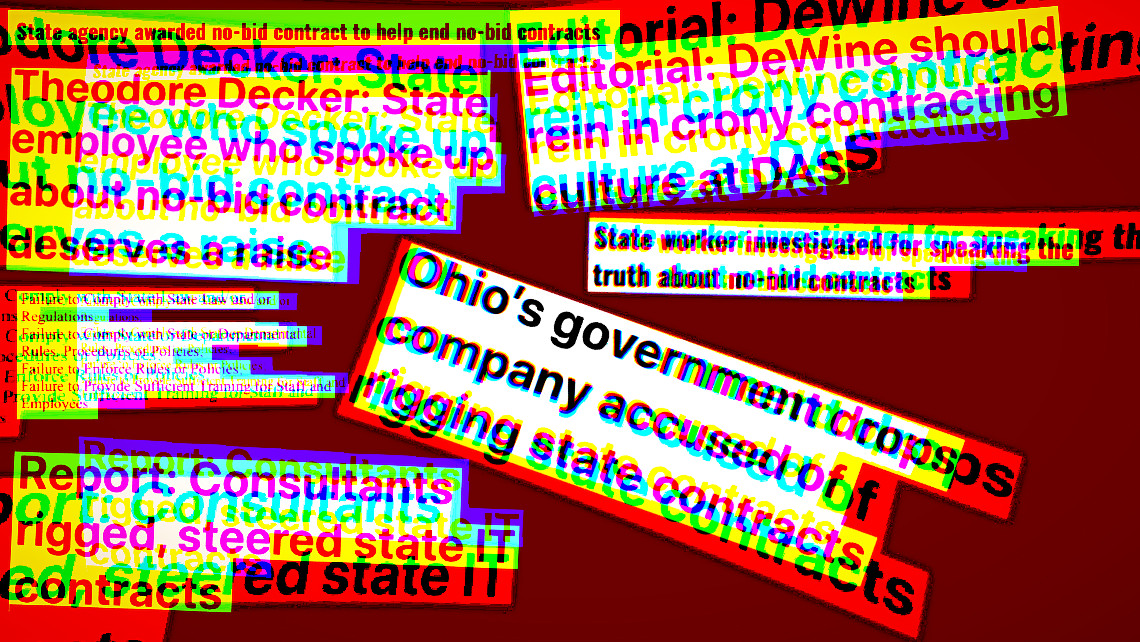The author gave OCSEA a version of this article (that wasn’t directly critical of them) and got the feedback that they didn’t want to include it in the union newsletter because they didn’t want to upset management. As far as the author is concerned there’s a whole lot of upsets coming to both State and Union management.
As a dual card wobbly, the One Big Union doesn’t end where the business union begins. The principles of solidarity you learn by being a wob are the only tools you and your fellow business union workers have to impact real change.
Here in Ohio, my fellow workers and I have been practicing solidarity tactics for the past few years now. Over this period, we’ve had some small victories such as flexible work hours, but we recently had a significant win and it was thanks to solidarity and direct action, two things our business union–the Ohio Civil Service Employees Association (OCSEA)– often gives little attention to.
The Enterprise IT Contracting (EITC) group has had a steady decline in positions over the past two administrations in the state of Ohio. The group originally operated with a staff of twenty-five people made up of seven management positions, one non-bargaining unit staff member, and seventeen union positions classified as Computer Acquisition Analysts (CAA 1, 2 and 3). Prior to the direct action, the group was down to thirteen; made up of two management positions, one unclassified, and ten union analysts. Of those, several had been reduced from CAA2 or CAA3 down to CAA1 classifications.
Additionally, the workload of EITC increased exponentially due to more of the state’s services being provided via digital solutions. Over recent fiscal years, EITC has been responsible for more than $2 billion in state spending; twice the amount when the group was twenty-five strong.
With so much money being governed by so few, there was bound to be a greater focus on what was happening within EITC. Several Columbus Dispatch investigations sparked more Ohio Inspector General reports. The result of these reports exposed that we analysts were steadfast about holding executive management to procurement rules; but, instead of accepting the governance required by law, management retaliated against the analysts. This played out in the form of targeting individual analysts–including me–for trumped-up disciplinary actions and removing analyst autonomy in the governance process so that both governing and documenting procurement maleficence would become nearly impossible. In one Columbus Dispatch op-ed, the writer claimed that I should have gotten a raise and my bosses should be the ones disciplined. Unfortunately, that’s not how capitalism works.
Following multiple years of executive management abuses, a stalled hiring process, and two more analysts resigning due to being overwhelmed by the workload, we reached a breaking point.
With this backdrop, we began to meet and draw up documentation of the workload and workforce changes and included data supporting how we have continuously operated in an ethical and professional way throughout these hard times.
In a letter we then delivered to management we stated: “We, the EITC analysts, are very proud of this record and the work we do. We are deeply invested in doing the best work we are able on behalf of our fellow citizens and taxpayers of Ohio.”
With our documentation of the current situation, the supporting data, and the desired path forward, we demanded a meeting with executive management. As anticipated, management invited HR as a counter to the union and challenge to our solidarity.
Fortunately, we were prepared. Sitting around the table, we each recounted our experiences and suffering, provided the data and factual evidence to support not only the negative impact on us but also the impact on the state at large. Management was left with little to say. The HR representatives hoped to placate us with empty promises and poor excuses about the hiring process and budgets. Ultimately, in frustration, management said: “If you know so much, you should come up with a plan for how to fix it.”
Once again, we were ready. Over the previous years, we had submitted process change ideas and other documents to management in attempts to improve our workplace. All of those had been ignored. The difference now, however, was that we were united as fellow workers, in solidarity, with no expectation that anyone would stand up and change the situation for us. Besides being prepared with facts and supporting data, we had made certain that every individual necessary for making these decisions were in the room.
Within two days and with those previous documents in hand, we updated and returned a comprehensive plan to everyone involved. The document outlined phases to undertake for getting workloads back under control and to reinstate some amount of morale to the group. Under the weight of the evidence and efforts, and potentially the unspoken threat of yet more executive malfeasance leaking to the press, management announced that two of our current staff members would be promoted and then their positions back filled. This would not only increase the wages for our fellow workers but also add two new workers to help with the overwhelming work load.
None of this could have been achieved without the solidarity and direct action taken by us. From the documentation of demands to the march on the boss, the union is not a thing apart from us, the union is us.


1 thought on “Unionizing Your Union”
Comments are closed.